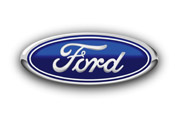2008 Ford Explorer Sport Trac Insurance Quotes
Confused by the wide range of insurance coverage company choices? You have a lot of company. You have so many options that it can quickly become a real hassle to find lower rates.
Auto Insurance Comparison Rates
There are several ways to compare Ford Explorer Sport Trac auto insurance quotes, and some are more efficient than others. You could spend your day talking about coverages with local insurance agents in your area, or you can stay home and use the web to get the quickest rates.
Many insurance companies enroll in a system where prospective buyers only type in their quote data once, and at least one company then returns a price quote based on that information. This system prevents you from having to do quote requests for each company you want a rate for.
To find out how much you can save on auto insurance click here (opens in new window).
The only downside to doing it this way is buyers cannot specifically choose the insurers you want pricing from. If you prefer to choose individual companies to request quotes from, we have assembled a list of companies who write auto insurance in your area. Click here for list of insurance companies.
However you get your quotes, ensure you’re using apples-to-apples coverage limits on every quote you get. If the quotes have different deductibles it’s not possible to make a fair comparison for your Ford Explorer Sport Trac. Having just a slight variation in coverage limits could mean much higher rates. It’s important to know that more quotes will enable you to find a lower rate.
When might I need an agent?
When it comes to choosing the right insurance coverage for your vehicles, there really is no best way to insure your cars. Everyone’s situation is a little different.
These are some specific questions might point out if you might need professional guidance.
- Do I have coverage when pulling a U-Haul trailer?
- Will my insurance pay for OEM parts?
- Am I missing any policy discounts?
- Does insurance cover damages from a DUI accident?
- Do I need an umbrella policy?
- Why am I required to buy liability insurance?
- When should I buy a commercial auto policy?
- Do I have newly-aquired coverage?
If it’s difficult to answer those questions, then you may want to think about talking to a licensed agent. If you don’t have a local agent, take a second and complete this form.
Auto insurance specifics
Learning about specific coverages of your auto insurance policy helps when choosing which coverages you need at the best deductibles and correct limits. The coverage terms in a policy can be impossible to understand and coverage can change by endorsement.
Coverage for liability
This can cover damage or injury you incur to people or other property. It protects YOU from claims by other people, and does not provide coverage for your own vehicle damage or injuries.
Liability coverage has three limits: bodily injury for each person injured, bodily injury for the entire accident and a property damage limit. You commonly see liability limits of 100/300/100 which stand for a $100,000 limit per person for injuries, a per accident bodily injury limit of $300,000, and a total limit of $100,000 for damage to vehicles and property.
Liability coverage pays for claims like loss of income, bail bonds and structural damage. How much liability coverage do you need? That is a personal decision, but consider buying higher limits if possible.
Comprehensive (Other than Collision)
Comprehensive insurance coverage pays for damage OTHER than collision with another vehicle or object. You first must pay your deductible then your comprehensive coverage will pay.
Comprehensive coverage pays for things like damage from getting keyed, damage from flooding, a tree branch falling on your vehicle, damage from a tornado or hurricane and hitting a deer. The most your auto insurance company will pay is the actual cash value, so if it’s not worth much more than your deductible consider removing comprehensive coverage.
Medical expense insurance
Personal Injury Protection (PIP) and medical payments coverage kick in for immediate expenses such as rehabilitation expenses, X-ray expenses, doctor visits, prosthetic devices and surgery. They can be used to fill the gap from your health insurance policy or if you are not covered by health insurance. It covers you and your occupants and also covers being hit by a car walking across the street. PIP coverage is not universally available and may carry a deductible
Protection from uninsured/underinsured drivers
This gives you protection from other motorists when they either are underinsured or have no liability coverage at all. Covered claims include injuries to you and your family as well as your vehicle’s damage.
Since a lot of drivers only purchase the least amount of liability that is required, their limits can quickly be used up. That’s why carrying high Uninsured/Underinsured Motorist coverage should not be overlooked.
Auto collision coverage
Collision coverage pays to fix your vehicle from damage resulting from colliding with a stationary object or other vehicle. You first must pay a deductible and then insurance will cover the remainder.
Collision coverage pays for things like crashing into a ditch, scraping a guard rail and damaging your car on a curb. Collision is rather expensive coverage, so consider removing coverage from vehicles that are older. Another option is to choose a higher deductible to save money on collision insurance.

